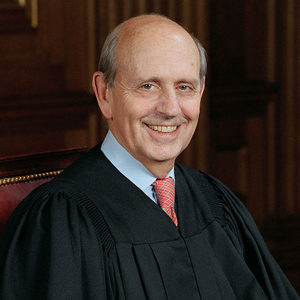Breyer explains reason for late-night opinions, comments on once-secret summary reversal custom

U.S. Supreme Court Justice Stephen G. Breyer.
U.S. Supreme Court Justice Stephen G. Breyer has shed light on late-night decisions on emergency requests in an interview with CNN.
Critics of the Supreme Court’s “shadow docket” of emergency orders and summary opinions have noted that the decisions are increasingly issued in the middle of the night, leading Justice Samuel A. Alito Jr. to protest in a speech at the University of Notre Dame’s law school that there is no intent to keep the decisions out of the spotlight.
Critics in particular have pointed to the late-night Supreme Court decision that refused to block Texas’ new law banning abortions after about six weeks of pregnancy. But Breyer told CNN that late-night opinions aren’t “because we’re sitting at the desk writing until midnight.”
The late hour in the abortion case probably stemmed from the administrative process that must take place after justices finish their opinions in the late afternoon, Breyer told CNN.
“It has to get printed. There are a number of administrative steps that are taken,” he said.
The steps include a review for typographical errors and for proper case citations.
Breyer also commented on an unwritten six-vote requirement that the high court requires to reverse a lower court decision without oral arguments. Alito had revealed the unwritten rule during his speech at the University of Notre Dame.
Breyer said the six-vote rule is “a custom.” Asked whether there was a reason to keep the rule a secret, Breyer said there was no reason.
On another topic, Breyer acknowledged that, when reviewing cert petitions, he sometimes considers how his colleagues will vote.
“Can I promise you that I’ve never thought of what the outcome eventually will be? No, I can’t promise you that,” Breyer told CNN. “The institution, like all institutions and like all human beings, is fallible. And it doesn’t work perfectly.”
Breyer spoke with CNN in conjunction with the release of his new book, The Authority of the Court and the Peril of Politics.



